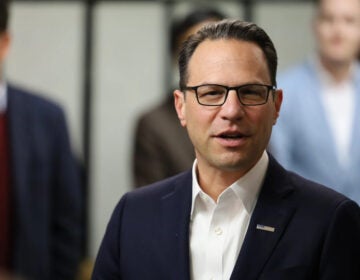New rates set for lawyers representing Philly’s poor, but city at a loss for $7.5M more
Listen
(utah778 / BigStock)
After two decades of stagnant pay, attorneys who represent Philadelphia’s indigent defendants have been promised a raise. But city officials have balked at coming up with an extra $7.5 million over the next two years to what is currently allocated to pay for court-appointed lawyers.
Right now, a city spokeswoman said, the funding is just not there. If that does not change, court battles over new pay could be looming.
It could also mean the number of lawyers willing to represent poor Philadelphians will continue to dwindle.
Most of the 1,200 defendants arrested in Philadelphia every week don’t have enough money to afford their own attorney. Often, they’re represented by the Defender Association of Philadelphia, full-time public defenders who are paid salaries.
But if several people are arrested in connection with the same crime, a public defender can represent only one — since knowing confidential details about others charged may present a conflict of interest. As a result, the other defendants receive a court-appointed attorney, who are paid a flat fee for their services.
In Philadelphia murder cases, for instance, four out of every five defendants fight against prosecutors with lawyers appointed by a judge. Many of the cases with court-appointed counsel are in Family Court, where lawyers represent parents and children facing issues of abuse and neglect.
“I joke that it’s God’s work, but it’s sort of not that much of a joke,” said criminal defense lawyer Marni Snyder.
Many see the line of work as a sacrifice; until recently, the flat fees paid to court-appointed lawyers had not meaningfully changed since the mid-1990s. Some say that ill-pay was only the start of the problems.
“After a while, I was getting late checks. I was getting my fees cut for significant amounts,” said Snyder.
Court-appointed work represented 70 percent of her work, yet only 20 percent of her income. For a typical case that could take weeks, she was being paid a flat rate of $350, which didn’t cover everything she did before the case was resolved, which caused some court-appointed lawyers to represent their clients less adequately than they could.
“There’s no place to record how many times you visited someone at the prison, so I notice lawyers don’t visit their court-appointed clients at the prison,” she said.
Leaving ‘the list’
Snyder couldn’t take it anymore. She had her name removed from what criminal defense attorneys call “the list.” And that’s bad for poor people who are charged with crimes. The more people who quit the court-appointed list, the more stress on the whole system ― and the worse for poor defendants.
“You don’t have experienced attorneys, so people get longer sentences. They won’t get adequate representation, which could lead to wrongful convictions,” said Ron Greenblatt, the former chairman of Philadelphia’s Association of Criminal Defense Lawyers.
Some lawyers, Greenblatt said, especially ones just starting their careers, would at first feel flattered when a judge would reach out asking if they would like to join the court-appointed list.
“Then a year or two into getting court appointment, and they realized they were suckers,” he said. “That they’re buried in work. They can’t make a living, and now they’re dropping off the list.”
Court officials in Philadelphia have long recognized the problem, but finding additional funding for court-appointed lawyers was a nonstarter. That changed in late June, when the First Judicial District of Pennsylvania issued an order raising rates. For felony cases, the flat fee went from $350 to $450. The per diem for homicide cases rose from $400 to $600. Most of the changes took effect on July 1. Some other pay hikes were not scheduled until July 2018.
A question of funding
After examining the pay increases, city officials said they’re not sure where the money will come from.
Officials estimate the new rates will add $7.5 million to what the city currently allocates to pay for court-appointed lawyers over the next two years, according to Lauren Hitt, a spokeswoman for the city.
Hitt called the pay increases “premature,” saying “it is being implemented, and we still need to figure out funding,” she said. “We are still working with the First Judicial District to identify sustainable revenue sources to support it.”
State Rep. John Taylor, R-Philadelphia, proposed a bill that would increase court filing fees and steer some funding away from the Jenkins Law Library to pay for new court-appointed rates, although Pennsylvania Supreme Court pushed back, saying the city, not the court system, should carry the burden of paying for the fee hikes, the Legal Intelligencer reported. Furthermore, officials from the Jenkins Law Library said cutting funds could threaten the library’s existence.
“Unless I hear something else, that’s a dead concept,” Taylor told the paper.
The new pay is now legally binding. And so, if the city pays the court-appointed attorneys according to the old rates, Greenblatt said he’ll be representing attorneys suing the city for shortchanging them.
“We anticipate that if this funding isn’t brought to bear, and people are not paid what they’re owed, that the lawyers will want to sue,” he said. “The city’s failure to pay at that rate would be contempt of court.”
But Snyder said an increase of $100 here, $100 there will not make court-appointed work worth it, since she thinks payment delays and bureaucracy will continue.
“I have friends at the Defender Association that will call me and say, ‘I have a complicated case, and I’d love for you to take it,'” she said. “And I’ve recently had to say, ‘I can’t take court-appointed cases any more — even though those are the cases that I’d love to take to make sure that person is properly represented.”
Correction: A previous version of this story misstated the additional cost of increasing the fees paid to court-appointed attorneys by using a figure provided by a city spokeswoman. That figure has been updated.
WHYY is your source for fact-based, in-depth journalism and information. As a nonprofit organization, we rely on financial support from readers like you. Please give today.




